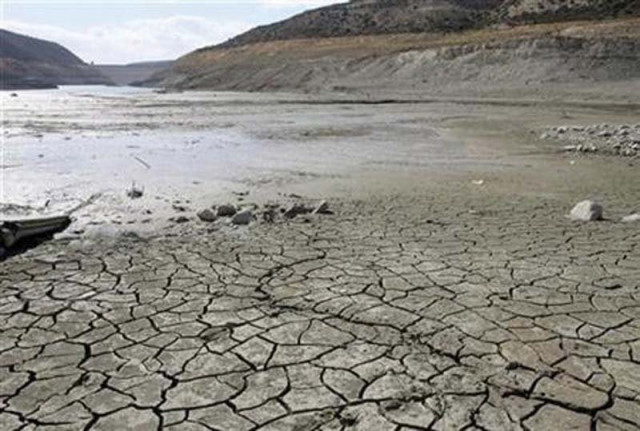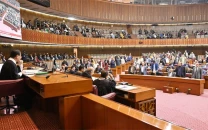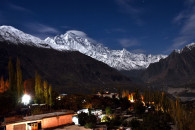Environment policy: Climate issues saw mix of highs and lows
Ministry reinstated, poor condition of forests, policy formulation and implementation issues

Ministry reinstated, poor condition of forests, policy formulation and implementation issues. PHOTO: FILE
The government reinstated the Ministry for Climate Change (MoCC) in a bid to pay more attention to climate related issues and deal with them effectively. In 2013, when the present government came into power, it downgraded the environment ministry to a division, eliminating its ability to make high-level decisions. However, in February 2015, the PML-N government restored the ministry and Senator Mushahidullah Khan was appointed as its minister. The move was warmly welcomed by environmentalists, who termed it as a good gesture that climate change was a priority area for government.
Countries across the globe reached a historic agreement at the UN climate change conference in Paris, in the last month of outgoing calendar year, after negotiating for two decades. They adopted an international accord aimed at transforming the world’s fossil fuel-driven economy, within decades, and slowing the pace of global warming. The agreement will be legally binding if joined by at least 55 countries - together responsible for at least 55 per cent of global greenhouse emissions. Such parties will need to sign the agreement in New York between 22 April 2016 and 21 April 2017, and also adopt it within their legal systems through ratification, acceptance, approval, or accession.
Every country had to submit its carbon control plan, called intended nationally determined contributions, by October 30 but Pakistan submitted it to the United Nations Framework Convention on Climate Change secretariat just few days before the UN conference, missing the submission deadline.
Two earthquakes struck the country in last two months of the departing year. The first one, on October 26, killed 300 people, injured more than 1,000 and turned thousands homeless in most parts of Khyber-Pakhtunkhwa. No effective measures could be taken, after the 2005 earthquake, for implementation of building regulations as improvised and re-notified by the Pakistan Engineering Council in 2007, and the hazards continued to turn into disasters.
The issue of municipal and hospital waste management remained unaddressed in the federal capital during the year. Air and water pollution continued to rise across the country in absence of an integrated environmental monitoring system due to negligence, and shortage of funds and technical staff.
During the year, the federal cabinet also approved accession to the Nagoya Protocol on access to genetic resources and fair and equitable sharing of benefits arising from their utilisation.
Prime Minister Nawaz Sharif took notice of poor condition of forests in the country and directed the MoCC to initiate prompt remedial measures. As a result, first forest policy was drafted, which is yet to finalise. Provinces finally notified their respective committees for implementation of National Climate Change Policy in April but after formation of committees no further progress could be made in this regard.
The Islamabad High Court (IHC) constituted an environmental commission to report about condition and factors degrading environment in Islamabad. The commission submitted its proposals to IHC but no practical steps could be taken for betterment of environmental issues in the federal capital. Metro Bus project and first phase of signal-free Islamabad Expressway projects were built without conducting any environmental impact assessment study by the Capital Development Authority. Pak-EPA also continued to fail in implementing environmental regulations. No practical steps could be taken to control rising level of pollution in Rawal Lake and Simli Dam.
Published in The Express Tribune, January 3rd, 2016.



















COMMENTS
Comments are moderated and generally will be posted if they are on-topic and not abusive.
For more information, please see our Comments FAQ